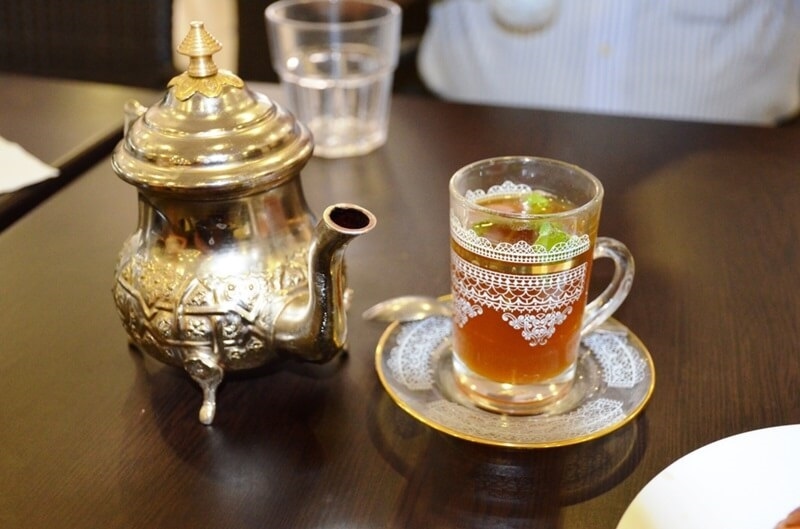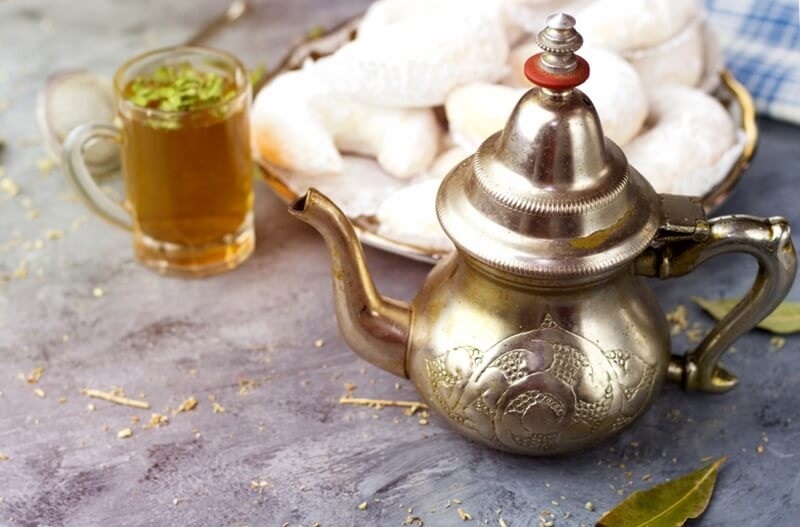
Traveling to North Africa opens the door to an entirely new sensory world, and few countries reflect that more beautifully than Algeria. Famed for its desert landscapes, vibrant markets, and deep cultural roots, Algeria also has a hidden treasure that many travelers overlook: its beverages. In Algeria, the drinks are not mere thirst quenchers but tell stories. Each glass, from the sweet mint tea to every fruity sharbat, carries layers of history, hospitality, and climate-driven creativity within.
Sipping on traditional drinks and Algerian juices can renew your travel experience and connect you with Algerian culture on a more intimate note. Let's take a tour through this spectacular Algerian drinks list, a perfect blend of hot teas, cold juices, milky drinks, and syrupy sharbat mixtures. Discover how every sip carries in it the rhythm of quotidian life in this North African beauty.
For U.S. travelers accustomed to coffee on the go, soda cans, and iced drinks, the world of Algerian beverages offers quite a different philosophy. In Algeria, drinks are connected to time, place, and community. When you give someone a drink, you're performing an act of hospitality-a way of saying, "You are welcome here."
These traditional beverages, which Algeria has elaborated over the centuries, reflect influences from Berber traditions, Arab culture, Ottoman tastes, and French colonial heritage in every possible variant, from mountain villages to Mediterranean coasts to Saharan oases. What unites them all is their role in bringing people together.

Understanding what's on the Algerian drinks menu helps in comprehending Algerian life. From being invited into homes to sitting down at a café or taking an easy walk through a local market, these traditional drinks will tell you more about the country than any guidebook.
Atay, or mint tea, is one of the most favored drinks in Algeria and a sign of welcome throughout North Africa. It's usually prepared with green tea leaves, fresh mint leaves, and a generous spoonful of sugar added. The drink is always poured from high up into small cups to create a light froth that is as much part of the presentation as is the flavor itself.
For Algerians, tea is not rushed; it's sipped slowly during long conversations with friends and family. When you're offered tea, it's more than refreshment; it's an invitation to connect. Many of the cultural beverages Algeria has carry this same sense of ritual, but mint tea stands at the heart of them all.
If you prefer your drinks to be less sweet, it's okay to ask for less sugar; however, sweetness is traditionally part of the charm. Just think about it as an edible welcome.
Among the most distinctive traditional drinks in the region is sharbat Algeria, a sweet syrup-based drink often flavored with rosewater, orange blossom, or fruit extracts. After the syrup has been mixed with cold water and ice, it becomes a fragrant, refreshing drink that is not only popular on hot days but also at celebrations.
It is a ceremonial drink that is prepared on the occasion of weddings, family gatherings, and throughout the month of Ramadan. Small glasses of it welcome guests to partake, signaling joy and blessing.
The U.S. equivalent could be lemonade or punch, but it is far more delicate, light, perfumed, and deeply traditional. Of all the Algerian drinks, this one carries the sweetness of hospitality itself.
When the midday sun really starts blazing over the Sahara or along the coastal cities, nothing beats a cold, natural juice. Algerian juices abound everywhere: at street stalls, cafes, and restaurants. They’re generally made from fresh oranges, pomegranates, melons, or dates, and sometimes mixed with sugar or milk.
These juices are on the list of common Algerian beverages, appreciated because of their freshness and simplicity. In a country where summers can get really hot, they help locals keep hydrated and energized. Travelers from the U.S. who love smoothies or cold-pressed juices will find familiar joy in these naturally sweet sips.
What sets Algerian juices apart is their purity: not mass-produced, not packed with preservatives, but made to be enjoyed fresh, often right before your eyes.
Of all the beverages of Algeria, few have such a fascinating story as Mazagran. This is one coffee drink that traces its origins to Algeria in the 19th century and is at times described as the world's first iced coffee. It is made by mixing strong coffee with lemon juice, ice, and water-a strange-sounding combination that turns out to be surprisingly refreshing.
For caffeine lovers from the United States, Mazagran is a true delicacy. The sour taste combined with the strong caffeine makes it an ideal energizer for hot afternoons. It also represents Algeria's unique blend of local ingenuity and European influence, showing how the country has always adapted global ideas to its own tastes.
Mazagran has remained on the drink list in Algeria, and to sip it in a café in Algiers or Oran is to step into a little piece of beverage history.
While many beverages are sweet and cooling in Algeria, a lot of them turn out to be rich and nourishing. Leben is a buttermilk-like fermented milk that is traditionally part of the regular diet, especially for rural and desert people. It’s tangy, creamy, and highly hydrating — ideal after a long day under the sun.
Other traditional drinks include Bouza: a fermented barley and milk drink consumed for generations. Both of these are much more than refreshing drinks; they form part of Algeria's food heritage and are consumed with very light meals or during times of fasting.
For those U.S. travelers accustomed to smoothies or yogurt drinks, these may appear somewhat familiar yet distinctly different: thicker, tangier, and deeply rustic. They're a taste of the authentic countryside and a reminder that the cultural beverages Algeria has to offer nourishment and flavor.
Not all the drinks of Algeria are centuries old, and modern Algeria has its own brands of soft drinks and sodas carrying cultural pride. Of course, global names are available, but most Algerians still enjoy their locally made sodas. For one, Hamoud Boualem's Selecto is caramel-flavored, fizzy, and iconic.
These sodas coexist with the traditional drinks, a balance struck by Algeria between heritage and modern life. For American travelers, tasting a local soda alongside a mint tea or sharbat makes for a fun comparison — and a way to experience daily Algerian culture in both its old and new forms.
But what sets beverages apart in Algeria is the meaning they convey. For the Algerians, drinks are a form of social language-a cup of tea invites conversation; a glass of sharbat celebrates an occasion; a sip of leben after a long day soothes and restores.
Understanding these cultural beverages offered by Algeria helps you navigate the local customs and ways with respect. For instance, refusing tea or sharbat if it's offered might imply some sort of rudeness since serving a drink is part of the hospitality of Algerians. Accepting it, even for a sip, builds goodwill and opens doors to genuine interaction.
The climate also shapes the culture of drinking. In a country where temperatures can soar, refreshment is not just a pleasure but a need. Thus, the list of Algerian drinks is full of cooling, hydrating options: juices, milk drinks, and syrupy mixes, all designed to beat the heat.
Be open to sweetness, as most of the traditional drinks in Algeria are quite sweet. If you prefer less sugar, you may say “moins de sucre” or “not too sweet.”
Keep these minor gestures and habits in mind, and you will find yourself blending into the rhythm of life in Algeria.
For the American traveler, drinking Algerian beverages makes sightseeing very much more than what it is: with every sip, a connection to the land, the people, and the moment.
Picture yourself starting the day with a glass of orange juice, freshly squeezed by a street vendor; cooling off mid-afternoon with sharbat Algeria after navigating a crowded market; ending your day with steaming mint tea shared among newfound friends. These are not just drinks but experiences that anchor your memories.
These flavors linger on when you are home, and you might even want to make traditional drinks with rosewater, mint, or even pomegranate juice, keeping a piece of Algeria alive in your kitchen.
Travelers are reminded by the beverage traditions of Algeria that sharing is at the heart of culture. Cultural beverages Algeria has developed over centuries are not individual indulgences but community rituals. They encourage slowing down, talking, and savoring the moment. This stands refreshingly in contrast to the hasty coffee culture of the U.S., where drinks are often consumed on the move. In Algeria, beverages are about being present with people, with place, with flavor.
This content was created by AI